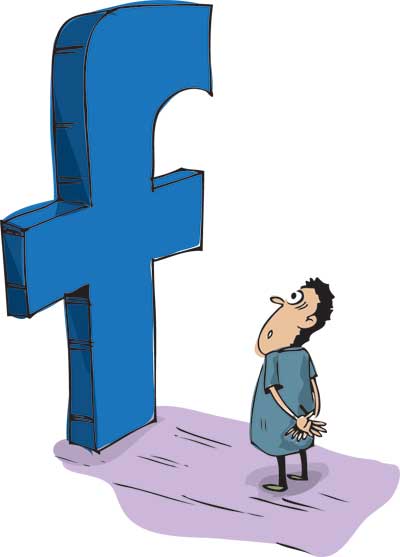Reply To:
Name - Reply Comment
There are signs that the authorities are contemplating on blocking or banning social media networks such as Facebook within Sri Lanka following two schoolgirls committing suicide after incidents related to Facebook. One media report said that the Police and the Children and Women’s Bureau have decided to bring in legislation to enable law enforcement authorities to impose severe penalties on individuals helping and encouraging young people between 16 and 18 years to use Facebook or any other social media networks.
Another media report quoted Director General of the Telecommunication Regulatory Commission Anusha Pelpita as saying that he could shut down Facebook in Sri Lanka if the government took a policy decision to that effect.
However, it is puzzling as to how one would come to a conclusion that social media networks are responsible for the recent unfortunate incidents of suicide by two schoolgirls. In one incident, a girl had been reprimanded by the principal of her school for posting unsuitable pictures on her Facebook page which reportedly led to her  suicide, while in the other incident a girl had sent her boyfriend whom she had befriended through the Facebook another girl’s pictures claiming that they were hers, and committed suicide after her lie was exposed.
suicide, while in the other incident a girl had sent her boyfriend whom she had befriended through the Facebook another girl’s pictures claiming that they were hers, and committed suicide after her lie was exposed.
It is true that Facebook had involvements in both incidents. But it is difficult for one to point the finger at Facebook as there are other factors which led to these suicides. In the first incident, one has to consider in which way the schoolgirl had used Facebook, the alleged severity of the principal’s reprimand and other aspects before passing judgment on the social media network. The fact that the principal has been released on bail after being arrested over the incident is another matter to be taken into account.
It is too early to decide whether it was a characteristic weakness of the schoolgirl or the severity of the principal’s reprimand that caused her to kill herself.
In the second incident, the girl had impersonated herself in the Facebook, and once exposed, she was not able to cope with the situation. She could have done the same thing using a marriage-proposal-section of a different media or on the Internet itself and could have faced the same fate.
It is true, that mobile phones and social media networks in particular and the Internet in general are double-edged blades that have to be used sensibly, especially in the hands of children.
On the other hand, these tools of communication and education are of immense advantage in the modern world, not only for adults but also for children despite their potential harms. Banning them in toto for individual incidents would not be a prudent answer.
There was a story in a media the other day about a young mother meeting with a tragic end when she was hurled onto the road after her saree got entangled in the rear wheel of her husband’s motorcycle and was run over by a heavy vehicle. But no sane person would suggest banning motorcycles or sarees or heavy vehicles to prevent recurrence of such incidents. As President Mahinda Rajapaksa recently pointed out parents and teachers have to be more vigilant about children who use social media networks.